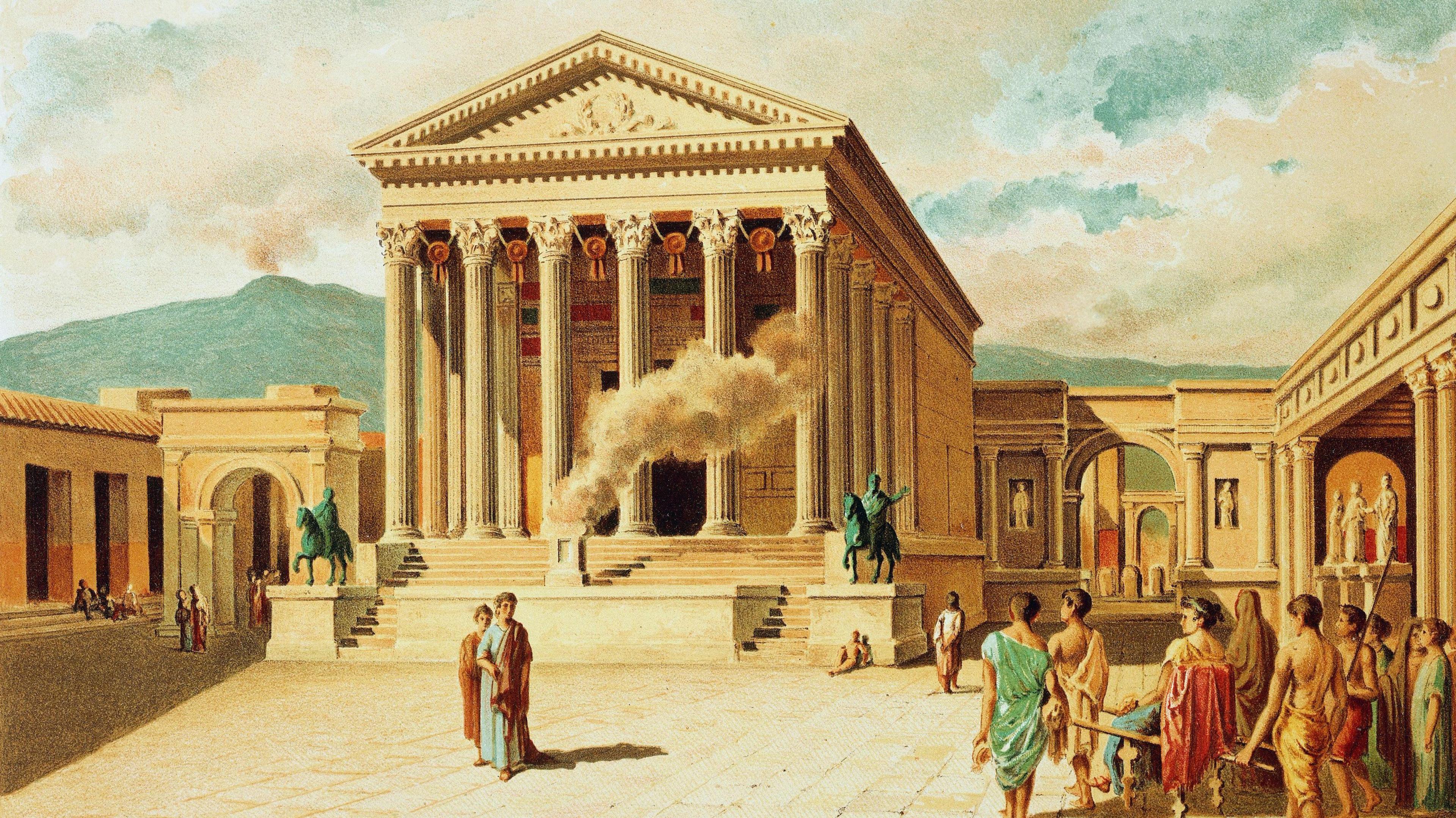Archaeologists make big discovery in ancient city of Pompeii

The people of Pompeii did not know that their city was in the shadow of an active volcano
- Published
Hundreds of years after the ancient Roman city of Pompeii was rediscovered, archaeologists are still uncovering incredible finds.
This week a team of archaeologists revealed they had found the graves of two people and their belongings, all of which had been buried by a volcanic eruption 2,000 years ago.
The eruption, which took place in AD79, covered the city under ash from a volcano called Mount Vesuvius.
But while the eruption caused devastation to the people living in Pompeii, the ash helped preserve the city for thousands of years including its buildings, decorations and objects.
It's a site of important historical significance, with new discoveries still being made hundreds of years after it was first excavated.
More on Pompeii
- Published12 April
- Published10 August 2022
- Published14 March 2023
What do we know about the latest Pompeii discovery?
The remains were found in the ancient city of Pompeii
Archaeologists said they found the skeleton of a man and a woman in a small bedroom of a house where it's believed they'd been trying to find safety from the eruption.
The people found were hiding out in this small room in a house
The woman was lying on a bed along with gold, silver and bronze coins around her.
There was also jewellery including gold and pearl earrings.
A number of artefacts were retrieved by archaeologists including coins and jewellery
The man was found lying at the foot of the bed.
"The opportunity to analyse the invaluable anthropological data relating to the two victims found," said the site's director Gabriel Zuchtriegel, adding that it "allows us to recover a considerable amount of information about the daily life of the ancient Pompeiians."
Why is Pompeii so special?
The Dioscuri house, which can be found inside the archaeological excavations of Pompeii, was restored a few years ago
The eruption in Pompeii led to the deaths of thousands of Romans.
They had no idea they were living in the shadow of one of Europe's biggest volcanoes.
Ancient Pompeii was rediscovered in 1599 by an architect called Domenico Fontana.
Recent years have seen a huge increase in archaeological activity which has helped us learn more about the lives of ancient Romans and the people who once lived in this ancient city.
More of the latest stories
- Published13 August
- Published14 August
